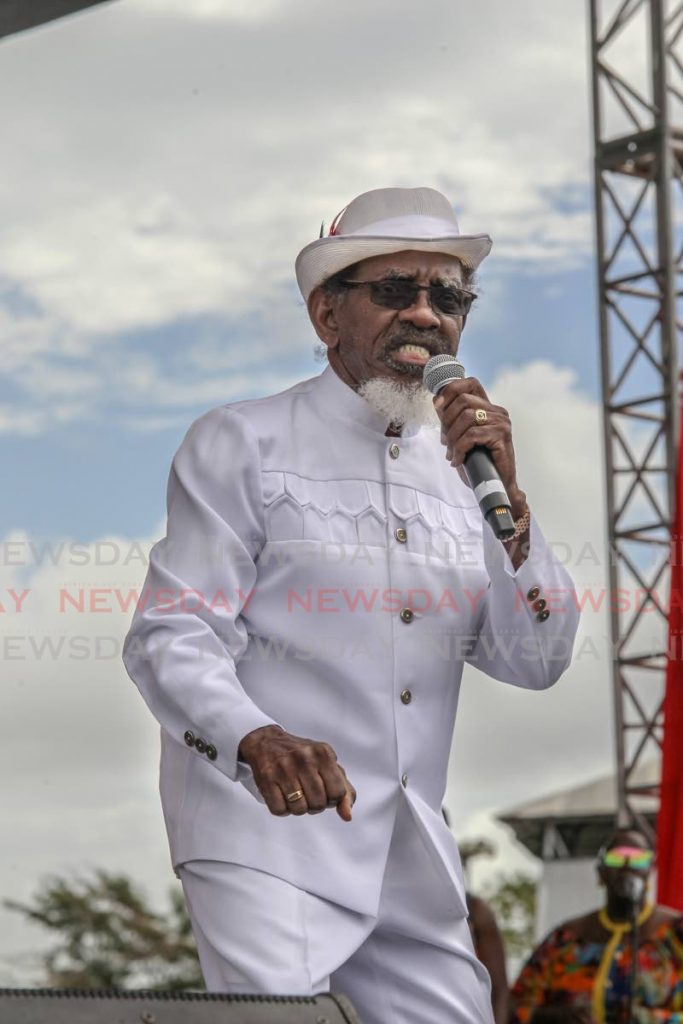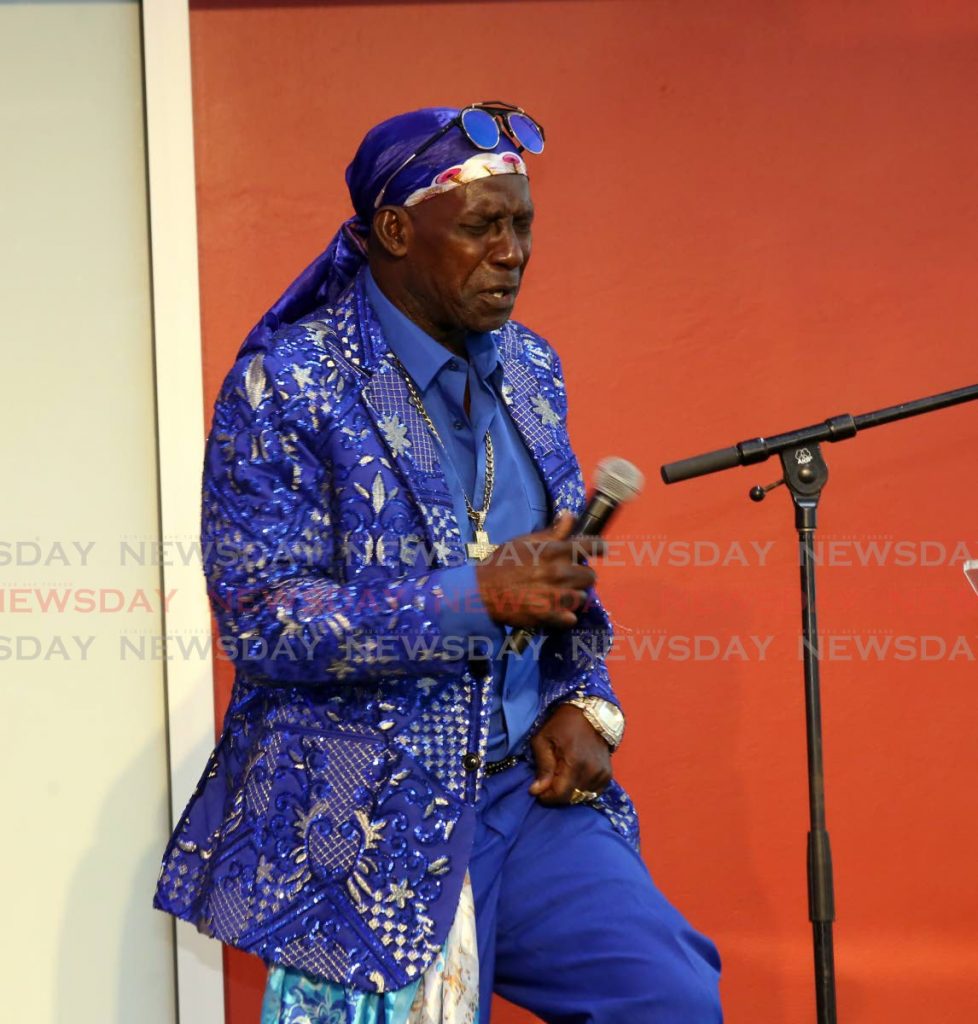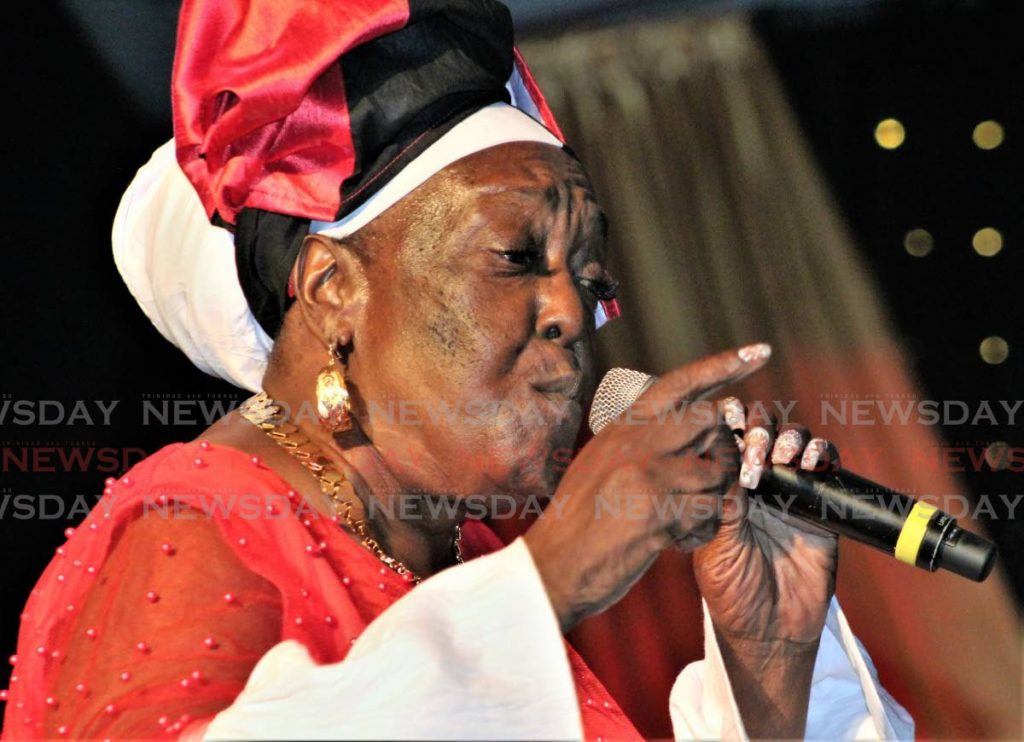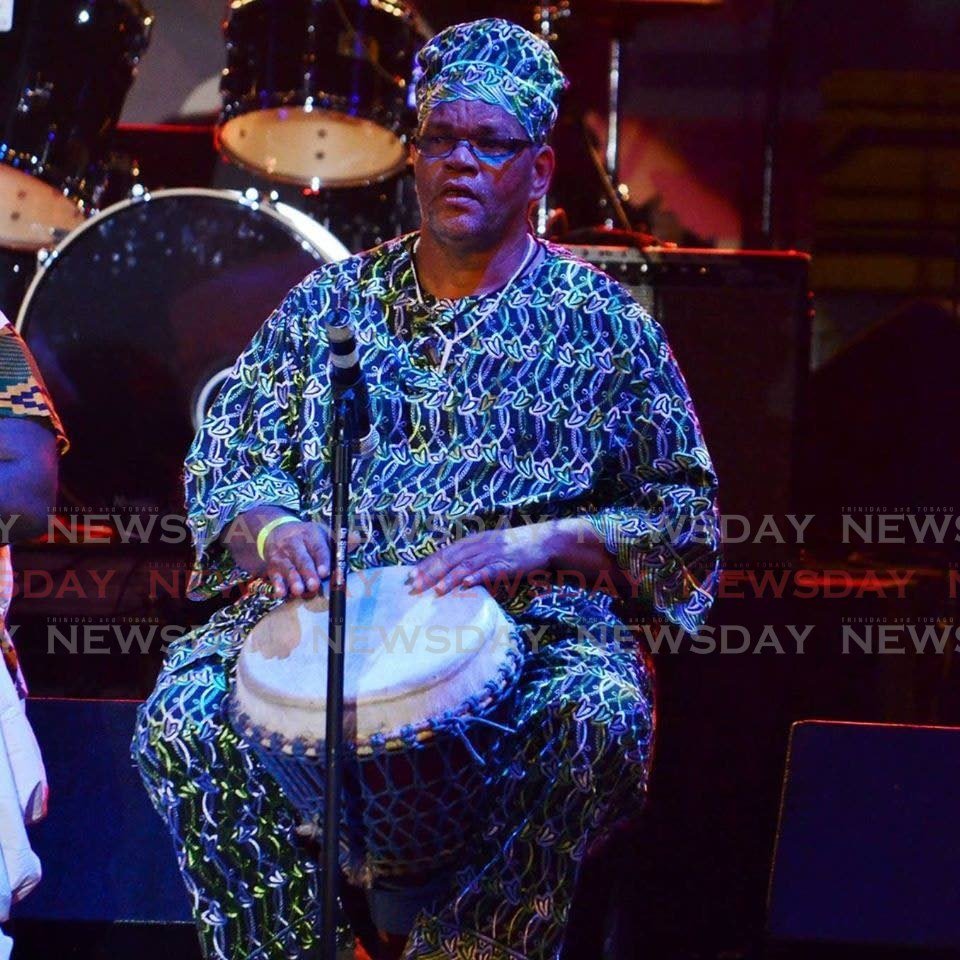Chalkdust: Teach art education in schools

There aren’t many people in TT who cannot identify the sounds of the Spiritual Baptist faith. The ‘doption, the heavy African drums, are a well-recognised part of not only the faith but also of calypso and soca. Doption is “derived from the English word adopt. It is a groaning sound made to various rhythms while praying or while on a spiritual journey,” according to the nalis.gov.tt website.
But while many have documented the richness of the faith’s sounds and songs not only in word but also song, it seems to be a fading part of TT’s musical terrain.
Calypsonian and academic Dr Hollis “Chalkdust” Liverpool believes the way to retain the African rhythms and sounds that are a part of both the faith and TT’s music is through teaching.
Liverpool said in a phone interview that enslaved Africans brought many traits with them, including their music.
“When you do research and you understand the work of the enslaved people, people give praise to all kind of people and don’t give praise to the Africans. It is the Africans who came here as enslaved men and women who gave us the rhythm pattern for our calypso.”
He added that in TT, the rhythm is called two/two because it is written in two beats to the bar, two half-notes to the bar.
“That rhythm pattern is an African thing,” he said.
Similarly, the Spiritual Baptist Faith is also African derived, he said.
Liverpool said the Merikins – African-American Marines who fought with the British in the War of 1812 who were settled in southern Trinidad – brought the Baptist faith to this country.
The faith, he said moved, from Africa to the southern US states and then to TT. Some traditions came direct from Africa.
“One of the reason TT has all of these Africanisms, is because we were late in slavery. We have direct links with Africa through the enslaved people.”
Those direct links can be seen in the music and the religion.
The faith’s music is so powerful and permeated so much of society that there are many songs talking about its power, including the 1980 Road March Soca Baptist, by Blue Boy (now Austin “SuperBlue” Lyons )

“SuperBlue” Lyons )
- SUREASH CHOLAI
This is a body of work that Liverpool often refers to in his postgraduate classes at the University of TT (UTT).
SuperBlue is from Point Fortin and Point Fortin is, to a large extent, the home of the Spiritual Baptist faith, Liverpool said.
“Blue Boy grew up with the Baptist and Baptist rhythms.”
In Soca Baptist, SuperBlue was saying the faith, songs and rhythms are seen as the calypso, Liverpool said.
“When you check it out you will see the commonality of it. He also saw the spirit of the African rhythms in the Baptist Faith, he also saw it in the calypso.”
But long before Soca Baptist, other calypsonians like Executor and Atilla sang about the faith and its music in the 1930s, 40s and onwards.
The potency of the faith and its music was also to be found in calypsonians like the late Sandra “Singing Sandra” Des Vignes Millington. Liverpool said often, after singing the first two or three verses of her calypso, Singing Sandra would give a Baptist rhythm in the fourth verse or at the end of it all because “she feeling it.” She was feeling the rhythm.
But Liverpool believes that that Baptist influence on TT’s musical forms is not as strong as it used to be. This was because today’s calypsonians do not know the tradition.

“As a young calypsonian, I learned from the older guys. Today, what we are having is so much intrusion into our culture....that the young people today don’t really understand what we have contributed in the first place and what is impacting upon us.”
Liverpool said a lot of Europeanisms and regional culture were also affecting TT.
But a large part of the problem was the lack of education on the topic, he said. He added that many teachers did not know that they were responsible for making students Trinidadians.
“That question of identity has been lost on teachers.”
Liverpool said many of TT’s young calypsonians and musicians were mostly interested in trying to do things for prominence or to make money.
For him, the key to retaining and fuelling the sound in TT’s music is through teacher training.
“One of the ways you have to do it is bring back those things into the training college, because if the teachers are not trained in that area, the children can’t get training.”
He added that art education was badly needed in TT.
“For many people, art is to make money.
“Every time I take up the papers and I see somebody in art today and they are given a whole page...when I look at it, is somebody doing something to try to sell in New York or sell overseas somewhere.
“The aim of it is to make money to sell to this organisation or that organisation. Everything is that kind of capitalism. But I am not seeing things to help children understand the art.”
This is something Everald “Redman” Watson also agrees with.

For the past 36 years, he has been a drummer and a member of the Spiritual Baptist faith. Musically, he straddles the line between the faith, calypso and soca.
He has played with artistes such as the late Andre Tanker and The One World Contraband as well as Ella Andall.
He was introduced to the faith through drumming.
“I started at the Best Village level and parts in different productions and plays would have the elements of the Baptist faith in it. We were always called to supply the rhythms for that and, if I should say, the vibe that goes with it as well.”
He said he is also an active member of the Orisha faith.
“It became a part of my everyday existence, what I do,” he said.
Like Liverpool, he sees a lot of TT’s music as being directly tied to the faith because of the rhythms.
“And Andre’s music was definitely, totally rooted in TT. A lot of his songs like Sayamanda and Forward Home…entailed that calypso and doption rhythm that comes out of the Baptist faith.”
He believes that a lot more music of the Spiritual Baptist faith should be played on the airwaves to make it known to the new generation.
He too agreed that the rhythms of the faith are not as prominent as they once used to be in calypso and soca.
“The music today has changed. Even when you listen to soca, which came rooted even along the line of the tradition, the soca is not what it was when Ras Shorty I (Garfield Blackman) had created it.”
Calypso and soca have been blended with “so many other things,” he said.
“When you listen to it there isn’t the feel of that ‘doption, as I said. There is not the feel of that calypso flavour and that true African link to our rhythms.”
For him, the solution to reining and retaining that spirit and rhythm lies in the education system.


Comments
"Chalkdust: Teach art education in schools"